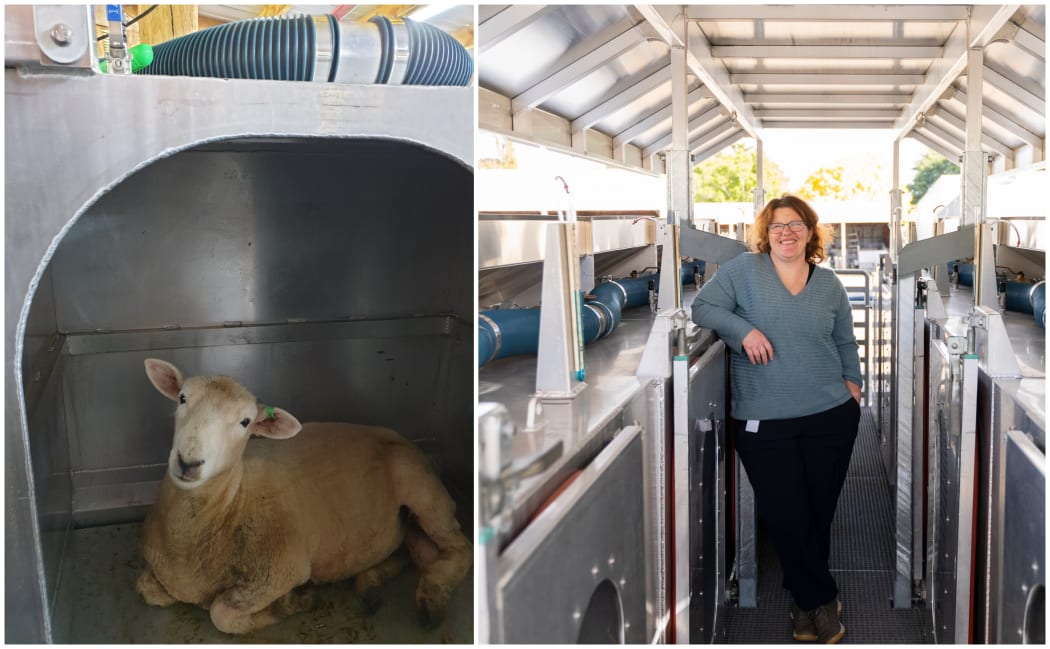
Photo: AgResearch
Technology behind breeding low-methane emitting sheep has the potential to be applied to cattle, with huge potential for reducing New Zealand's greenhouse gasses.
Scientists at AgResearch have found that lower methane emissions are a heritable trait in sheep.
Emissions are measured using portable accumulation chambers, with the lowest emitting sheep producing close to 13 per cent less methane than the highest emitters, per kilogram of feed eaten.
It's now hoped that this will be transferable to cattle, with a single chamber being used to test this.
Thirty-five percent of New Zealand's greenhouse gases come from grazing livestock; with sheep accounting for one third of that, and cattle 70 percent.
If New Zealand's entire flock were to become low methane emitting, it's estimated the country could reduce methane emissions by one percent per year.
Kathryn speaks to Dr Suzanne Rowe, a geneticist and senior scientist at AgResearch. She'll be speaking at at E Tipu: The Boma Agri Summit, being held 21-22 June in Christchurch and online.

